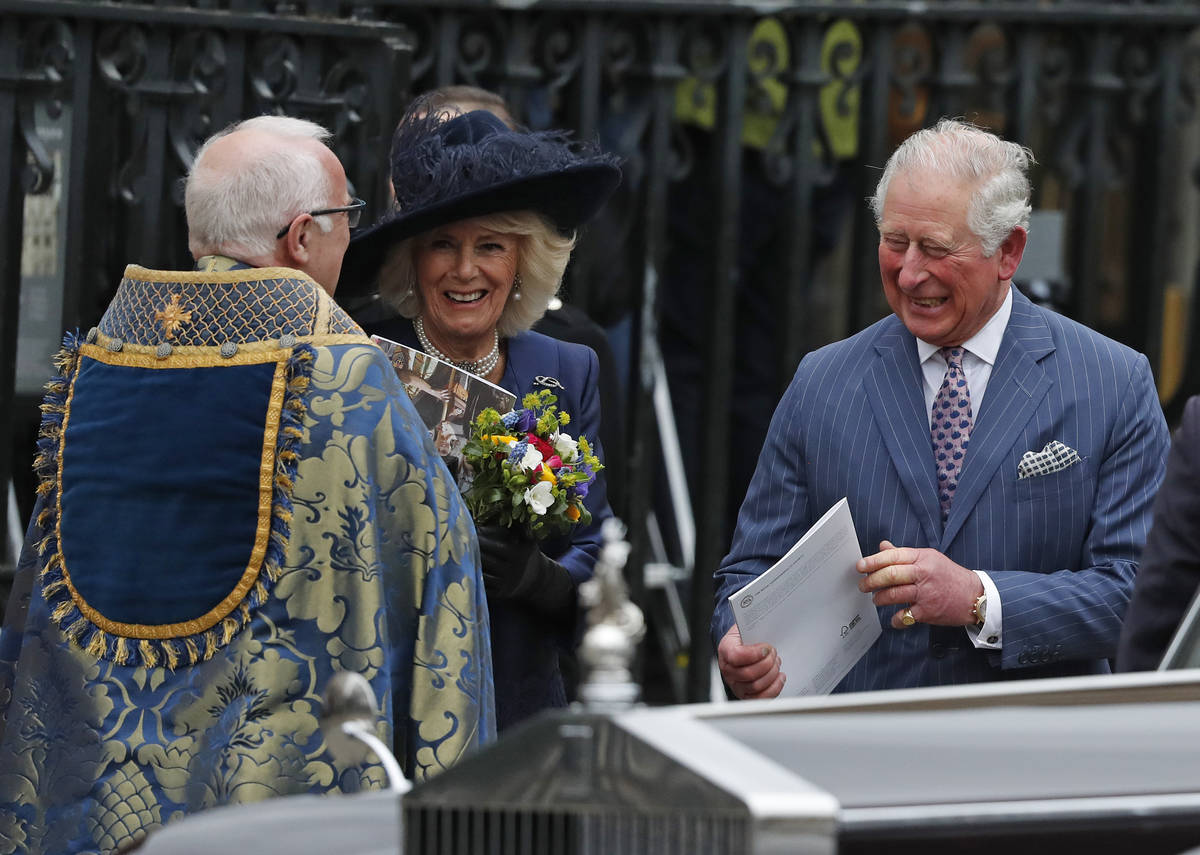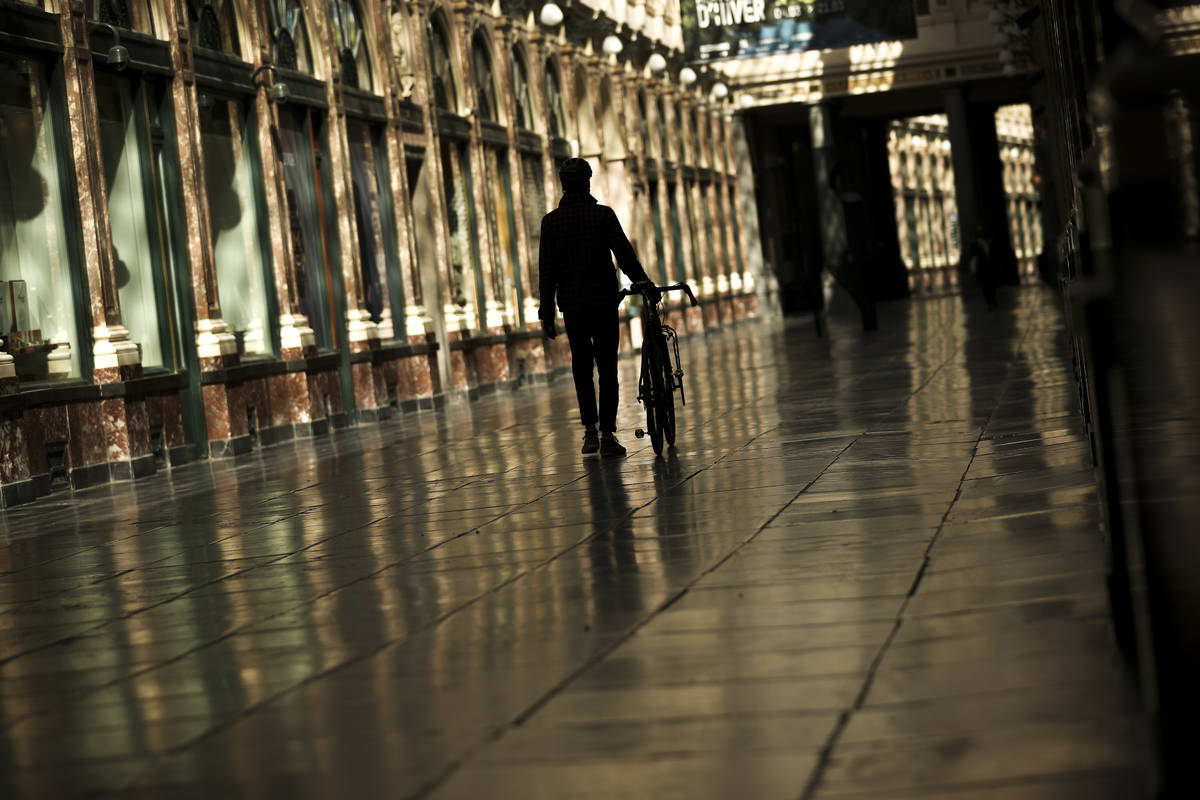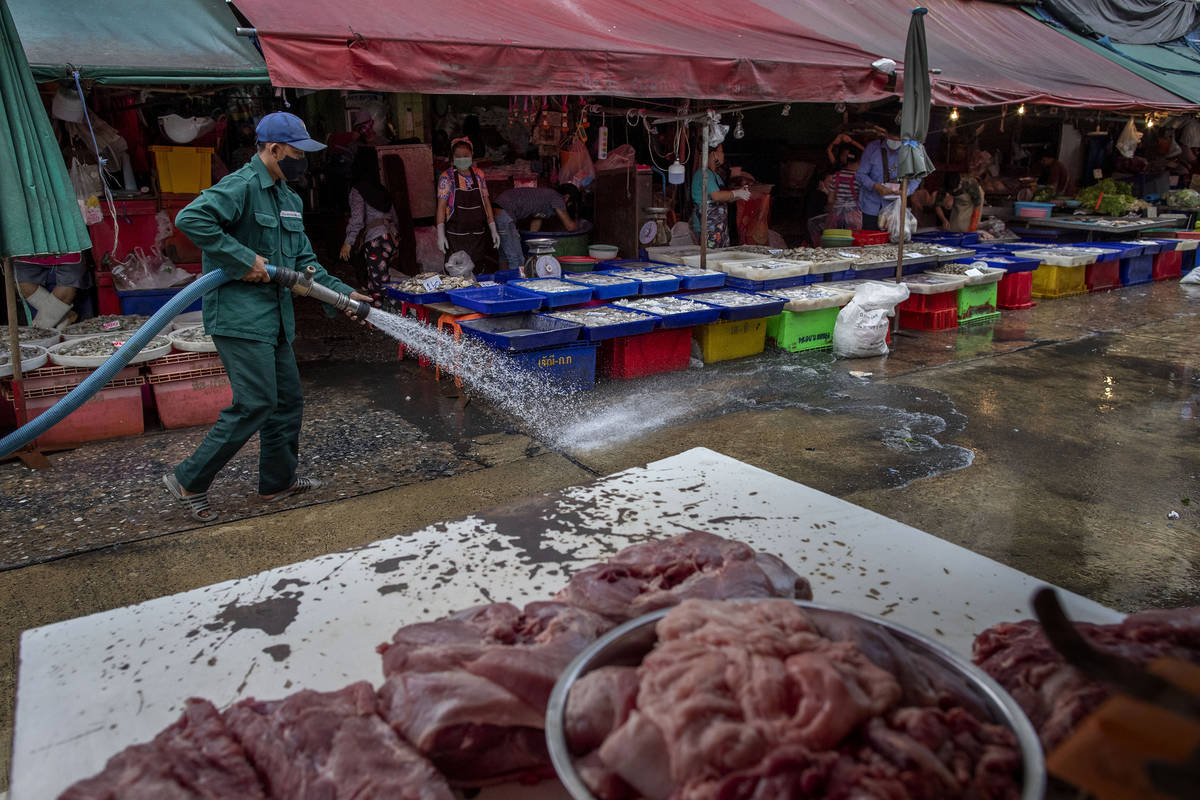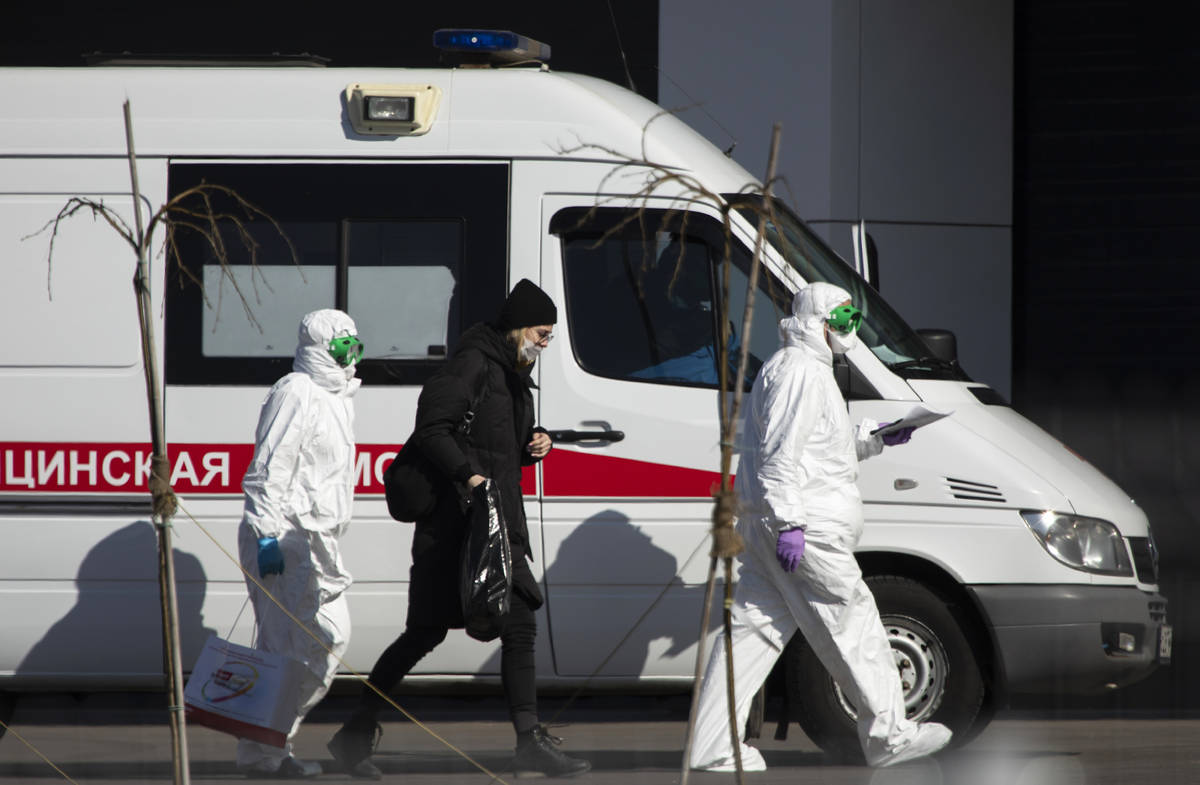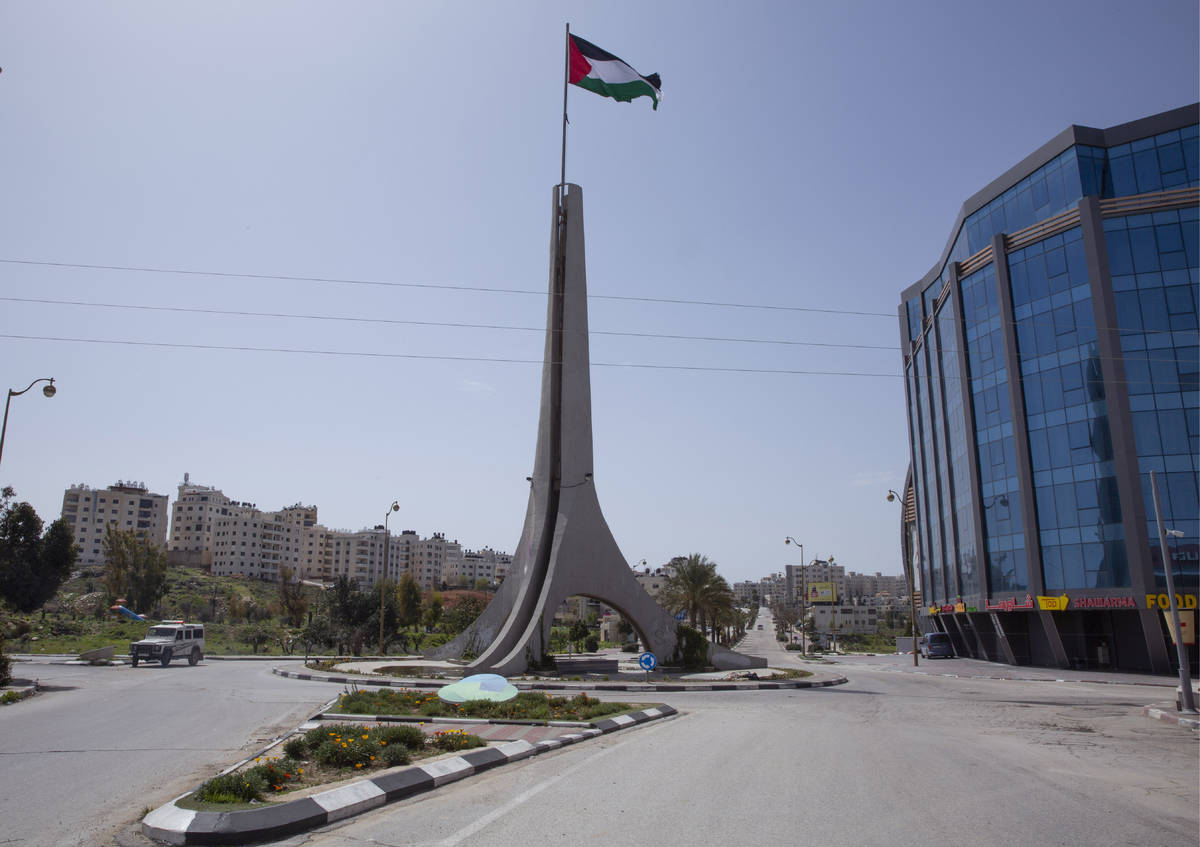Prince Charles diagnosed with coronavirus
LONDON — Prince Charles, the heir to the British throne, has tested positive for the new coronavirus.
The prince’s Clarence House office says the 71-year-old is showing mild symptoms of COVID-19 and is self-isolating at a royal estate in Scotland.
It says his wife, Camilla, has tested negative.
The palace says Charles “has been displaying mild symptoms but otherwise remains in good health and has been working from home throughout the last few days as usual.”
What’s happening today
— Trains carrying factory employees back to work after two months in locked-down cities rolled out of Hubei province, the center of China’s virus outbreak, as the government began lifting the last of the controls that confined tens of millions of people to their homes.
— A “cacophony of coughing” in packed emergency rooms. Beds squeezed in wherever there is space. Overworked, sleep-deprived doctors and nurses rationed to one face mask a day and wracked by worry about a dwindling number of available ventilators. Such is the reality inside New York City’s hospitals, which have become the war-zone-like epicenter of the nation’s coronavirus crisis.
— Despite what you may have read in a text message or on social media, there are currently no plans for a national quarantine, let alone martial law. Rumors of a military-enforced national lockdown have been debunked repeatedly by state and federal authorities who say their recurrence shows just how persistent false claims can be during an emergency, and why it’s vital to find reliable sources of information.
— For most Americans, the idea of a shared national sacrifice is an abstraction. It’s a memory passed on from a grandparent or through a book or movie. Will America step up as it enters what one historian calls “a new moment”?
— The coronavirus is waging a war of attrition against health care workers throughout the world, but nowhere is it winning more battles at the moment than in Italy and in Spain, where protective equipment and tests have been in severely short supply for weeks.
16 states asking Trump to use DPA
Wisconsin Attorney General Josh Kaul is leading a coalition of 16 attorneys general in urging President Donald Trump to use the Defense Production Act to boost production of masks and respirators in the fight against COVID-19.
Kaul says healthcare workers, law enforcement and other first responders “need resources now.” The Democratic attorney general says Trump must act now and use his broad power to address shortages in critical supplies.
Trump has balked at using his authority under the recently invoked Defense Protection Act to compel the private sector to manufacture masks and ventilators, even as he encourages them to spur production.
Congress reaches deal
The White House and Senate leaders of both U.S. political parties have struck an agreement on a sweeping $2 trillion measure to aid workers, businesses and a health care system strained by the rapidly spreading coronavirus outbreak.
Top White House aide Eric Ueland announced the agreement in a Capitol hallway shortly after midnight. The agreement comes after days of often intense haggling and mounting pressure and still needs to be finalized in detailed legislative language.
The unprecedented economic rescue package would give direct payments to most Americans, expand unemployment benefits and provide a $367 billion program for small businesses to keep making payroll while workers are forced to stay home.
More than 700 dead in Spain overnight
Spain recorded a record daily increase of 738 deaths, pushing it to 3,434 overall and past China’s 3,285, the Ministry of Health said. The country’s infections rose by 20% to 47,610, and more than 5,000 have recovered.
Fernando Simón, head of Spain’s health emergency coordination center, said he hoped the numbers would peak soon.
“If we are not already at the peak, we are very close,” he said. “I cannot say that we have reached it.”
Even once the numbers crest, it would be “counterproductive” to think about relaxing restrictions anytime soon, he added.
UN boss calls for care of prisoners
NEW YORK — The U.N.’s top human rights official is calling on governments to ensure that prisoners aren’t put at risk by the coronavirus outbreak.
Michelle Bachelet. the U.N. High Commissioner for Human rights, says the virus could be “rampaging” through prisons, immigration detention centers and psychiatric hospitals
In a statement, she noted facilities in many countries are overcrowded, often unhygienic and have limited or non-existent access to health care. That makes it impossible for people to adequately distance themselves to avoid spreading the virus.
Outbreaks in prisons have been reported in several countries, including the United States. Many authorities have proposed limited, temporary prisoner releases to ease overcrowding in jails.
Putin delays vote on amendments
Citing the coronavirus, Russian President Vladimir Putin on Wednesday postponed a nationwide vote on proposed constitutional amendments that include a change potentially allowing him to stay in office until 2036.
Putin didn’t set a new date for the plebiscite originally scheduled for April 22, saying that it would depend on how the pandemic develops in Russia.
He also announced during a televised address to the nation that the government doesn’t want Russians to go to work next week, except for those in essential sectors. Stores, pharmacies and banks will stay open, he said.
Russian military to be trained on handling virus
Russian President Vladimir Putin has ordered the military to train to help handle the coronavirus outbreak.
The Defense Ministry says the four-day exercise that began Wednesday will check the troops’ readiness to deal with contagion. The military will run drills on how to deal with the outbreak at its bases and check the military’s ability to quickly deploy its forces across the vast country.
Zimbabwe doctors strike over lack of gear
Zimbabwe’s public hospital doctors are going on strike over what they call a lack of adequate protective gear as the coronavirus begins to spread in a country whose health system has almost collapsed.
The Zimbabwe Hospital Doctors Association president, Tawanda Zvakada, says doctors are at “high risk” of contracting the virus: “Right now we are exposed and no one seems to care.”
He says doctors have an inadequate stocks of gloves, masks and gowns.
The southern African nation has reported three cases of COVID-19 and recorded its first death this week.
Coronavirus found in Dutch sewer
The Dutch public health institute says the coronavirus has been discovered in sewage in the Netherlands.
The institute says DNA tests confirmed the virus in waste water from the southern city of Tilburg and a nearby town, which are in the hardest-hit Dutch region, as well as from the capital Amsterdam.
It says symptoms of the disease caused by the virus can include diarrhea in some patients and the virus can be detected in human waste of some infected patients.
Dutch sewage workers already wear protective clothing that shield them from the coronavirus.
Pope urges world prayers
Pope Francis has reaffirmed the need to protect all life, rallying Christians around the world to pray together for those sick with the coronavirus and the medical personnel who are caring for them.
Francis presided over a global noontime prayer Wednesday, in which he begged for God’s mercy amid the pandemic.
The prayer fell on the 25th anniversary of a landmark Vatican document reaffirming the inviolability of all human life from conception to natural death. Francis dedicated his comments to the document, which strongly reaffirmed church teaching opposing abortion and euthanasia.
Francis says it is imperative to “relaunch this teaching in the context of a pandemic that threatens human life and the global economy.”
Some conservative Christian commentators, as well as U.S. President Donald Trump, have warned the consequences of the financial shutdown aimed at preventing the virus’ spread and protecting the elderly and sick are worse than the virus itself.
Japan issues travel warning
Japan’s foreign ministry says it has raised its travel warning to its people and urged them not to make any non-essential trips outside of the country.
The measures follow similar caution for most of Europe and the U.S. amid the rapid increase in the number of cases in those areas.
Also, the ministry says two employees at its embassy in Washington have contracted the virus and isolated themselves. One has no notable symptoms, while the other has a fever. A Japanese official at Japan’s embassy in Macedonia also tested positive for the virus after traveling to Greece to help in the Olympic Flame handover ceremony.
Positive: Air quality better
With a soaring infection rate, steadily growing death toll and enforced quarantine, it’s hard to see the positive side of the coronavirus, but the European Environment Agency says that air quality is improving.
The EEA said Wednesday that new data confirms “large decreases in air pollutant concentrations — of nitrogen dioxide concentrations in particular — largely due to reduced traffic and other activities, especially in major cities under lockdown measures.”
Nitrogen dioxide is mainly emitted by road transport, and the agency says levels of the pollutant in northern Italy, the epicenter of the country’s coronavirus outbreak, are ranging from 21-47% lower this month than in March 2019.
Similar trends have been seen in other parts of Europe under lockdown. Levels in Barcelona and Madrid in Spain dropped by 40-55% in the week of March 16-22, while NO2 levels in the Portuguese capital Lisbon also dropped 40% over the same week.
The agency notes that air pollution contributes to respiratory and heart disease but that it’s not yet clear whether exposure to such gases might worsen the condition of people with COVID-19.
However, EEA chief Hans Bruyninckx insists that crisis measures are not the way to tackle air pollution. “Addressing long-term air quality problems requires ambitious policies and forward-looking investments,” he says.
Thailand PM takes charge
Thailand’s prime minister says he will take sole charge of the country’s battle against COVID-19, warning the outbreak may get much worse.
Prime Minister Prayuth Chan-ocha’s government issued a 16-point order for the national state of emergency set for Thursday until April 30 that forbids most foreigners from entering the country and bans rallies and other gatherings in crowded places.
It does not include a curfew that had been expected as a measure to enforce social distancing and uninfected people are not confined to their homes.
British Parliament shuts down for 4 weeks
Britain’s Parliament is set to shut down for at least four weeks because of the coronavirus pandemic.
Lawmakers have continued to attend — though in smaller numbers — despite the spread of COVID-19, which has reached 8,077 confirmed cases and 422 deaths in the U.K. Visitors have been banned from the Parliament buildings and some staff have been working from home.
With Britons now ordered to stay home and all but essential shops shut, Parliament is expected to shut down once lawmakers have approved an emergency law on Wednesday giving the government more powers to fight the coronavirus.
Lawmakers will vote on a motion suspending Parliament until April 21. They had previously been due to take an Easter break from April 1-20.
Africa cases swell
Coronavirus cases across Africa are now above 2,400, and South Africa has more cases than any other African nation with 709. The continent’s most developed country enters lockdown first thing Friday.
Germany to OK huge aid deal
Germany’s parliament is meeting to approve an enormous package drawn up by the government to cushion the economic impact of the coronavirus outbreak.
Lawmakers were to vote Wednesday on a series of measures that will allow the government to offer aid totaling more than 1 trillion euros ($1.1 trillion).
As a precaution, members of parliament were spaced widely apart in Berlin’s Reichstag building for the session.
The government is breaking with six years of balanced budgets to borrow what Finance Minister Olaf Scholz called the “gigantic sum” of 156 billion euros to finance the packages and cover an expected shortfall in tax revenue. Parliament’s approval is needed to loosen legal limits on running up debt.
Scholz, who is Germany’s vice chancellor, presented the package in place of Chancellor Angela Merkel, who is in quarantine at home after a doctor who gave her a vaccination tested positive for the coronavirus.
Scholz said that “we as the German government are doing everything necessary and everything possible to cushion the economic and social consequences of managing the crisis.”



